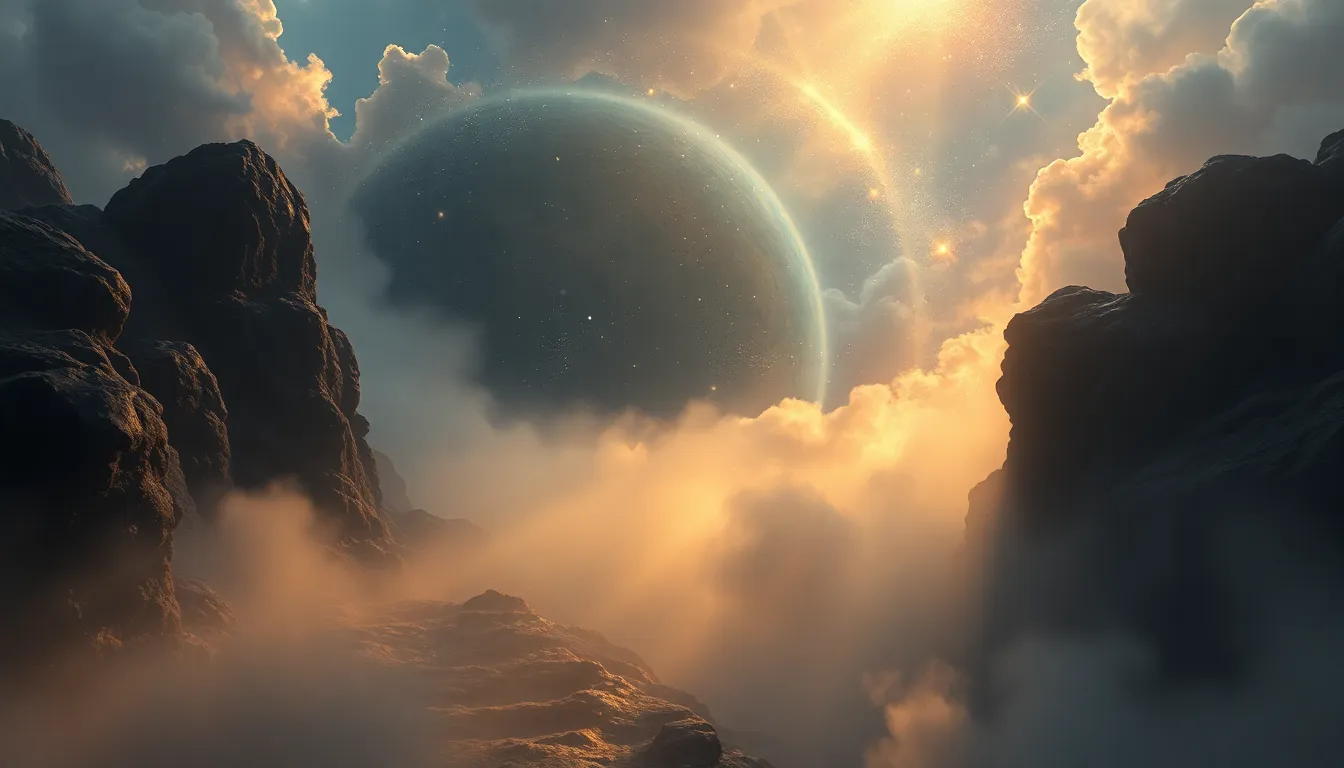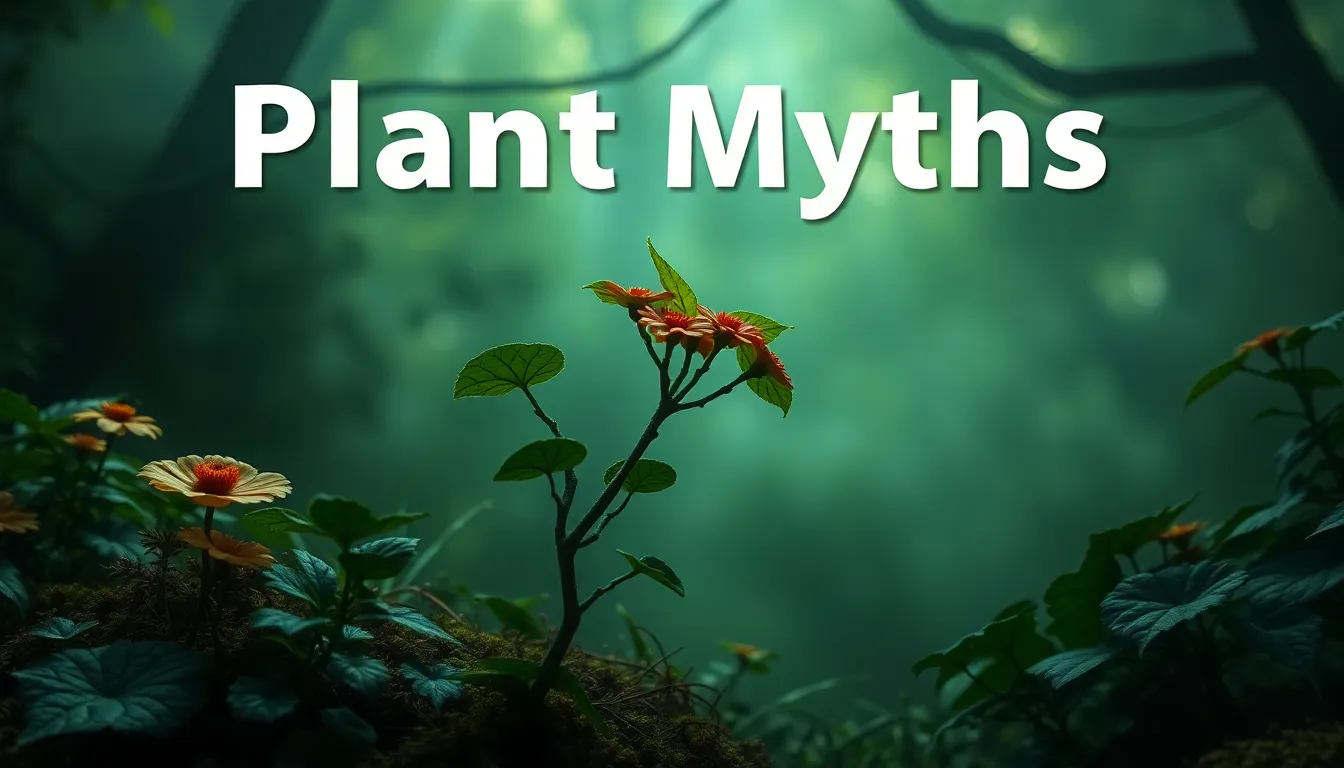The First Whisper: Creation Myths That Speak to Our Hearts
Introduction to Creation Myths
Creation myths are foundational stories that explain the origins of the world, humanity, and the cosmos. These narratives often provide insight into how different cultures perceive their existence and the universe around them. They serve not only as explanations for the mysteries of life but also as vehicles for cultural values, moral lessons, and identity.
The significance of creation myths varies across cultures, but their universality highlights a shared human curiosity about beginnings. This article explores various creation myths from around the world, examining their themes and the profound truths they convey about existence, identity, and the human experience. Through these stories, we can find connections that speak to our hearts and illuminate the tapestry of human culture.
The Universal Appeal of Creation Stories
Creation myths resonate across cultures for several reasons. They address fundamental questions about life, existence, and the universe that are intrinsic to the human experience. The common themes found in these myths include:
- Chaos: Many myths begin with a state of chaos or nothingness.
- Divine Intervention: The involvement of gods or supernatural forces in bringing order to the chaos.
- Emergence of Life: The gradual emergence of life and the establishment of the natural order.
These stories play a critical role in shaping cultural identity and values. They offer moral frameworks and reinforce community bonds, making them essential components of cultural heritage.
Inanna and the Descent to the Underworld: A Sumerian Tale
The Sumerian myth of Inanna, the goddess of love and war, tells the story of her descent into the Underworld. Inanna’s journey represents a profound exploration of themes such as death, loss, and renewal. When Inanna descends, she leaves the world of the living, symbolizing the inevitability of death. However, her eventual return signifies rebirth and transformation.
This narrative reflects the human experiences of grief and recovery, illustrating how loss can lead to new beginnings. Inanna’s story resonates with anyone who has faced adversity and emerged transformed, highlighting the cyclical nature of life and the resilience of the human spirit.
The Judeo-Christian Creation: Genesis and Its Impact
The Genesis creation narrative in the Judeo-Christian tradition describes how God created the world in six days, culminating in the creation of humanity in His image. This story emphasizes themes of creation, humanity, and stewardship over the earth.
The moral and ethical implications of the Genesis story have profoundly influenced Western thought. The idea of humanity as caretakers of the Earth has shaped ecological ethics and discussions about environmental responsibility. The narrative invites reflection on the relationship between creator and creation, urging a sense of accountability and stewardship in our interactions with the world.
The Hindu Cosmology: The Dance of Vishnu and the Cycle of Life
In Hindu cosmology, Vishnu plays a pivotal role in creation and preservation. The mythic cycles of creation and destruction depict time as cyclical rather than linear, emphasizing the interconnectedness of all existence. Vishnu, through his avatars, intervenes in the world to restore balance and order.
This cyclical perspective resonates with the human experience of life, death, and rebirth. It reflects the understanding that destruction is often followed by renewal, mirroring the natural processes observed in the world around us. This belief underscores the importance of acceptance and adaptability in the face of change.
The Indigenous Perspective: Earth as a Living Entity
Various Indigenous creation myths, such as those from Native American and Aboriginal Australian cultures, emphasize the Earth as a living entity and the interconnectedness of all life. These narratives often portray creation as a collaborative process between humans and nature, emphasizing respect and reciprocity.
Key concepts in these myths include:
- Earth as Mother: The Earth is often personified as a nurturing mother, highlighting the relationship between humans and the natural world.
- Interconnectedness: Every element of nature is viewed as part of a larger ecological web, stressing the importance of harmony.
- Environmental Stewardship: These myths underscore the responsibility humans have to protect and sustain the environment.
Such narratives are crucial for cultural sustainability and environmental ethics, reminding us of our place within the natural world.
The Greek Creation Myths: Chaos and Order
The Greek creation myths start with Chaos, a primordial void, from which Gaia (the Earth) emerges. This narrative illustrates the duality of chaos and order, reflecting the complexities of human existence. The transition from chaos to the establishment of order can be seen as a metaphor for the human journey through uncertainty toward understanding and clarity.
The influence of Greek mythology extends beyond literature; it has shaped Western philosophy and thought. Concepts of order, justice, and the struggle against chaos are woven into the fabric of Western culture, illustrating how these ancient narratives continue to inform modern values and beliefs.
Modern Interpretations of Creation Myths
Contemporary thinkers often reinterpret ancient creation stories, finding relevance in modern contexts. The impact of science and technology poses new challenges to traditional narratives, prompting questions about the origins of the universe and life itself.
Despite these challenges, creation myths retain their significance in today’s society. They serve as sources of inspiration, guiding personal identity and community values. The narratives encourage us to reflect on our place in the universe and the stories we tell ourselves about our beginnings.
Creation Myths and Psychological Archetypes
Carl Jung’s theories on archetypes and the collective unconscious suggest that creation myths serve as psychological frameworks for understanding human behavior. These myths tap into universal themes and emotions that resonate within the human psyche.
Creation myths play a vital role in both personal and communal identity. They help individuals navigate their experiences and provide a sense of belonging within a larger narrative. By exploring these myths, we can uncover deep-seated truths about ourselves and our collective journey through life.



